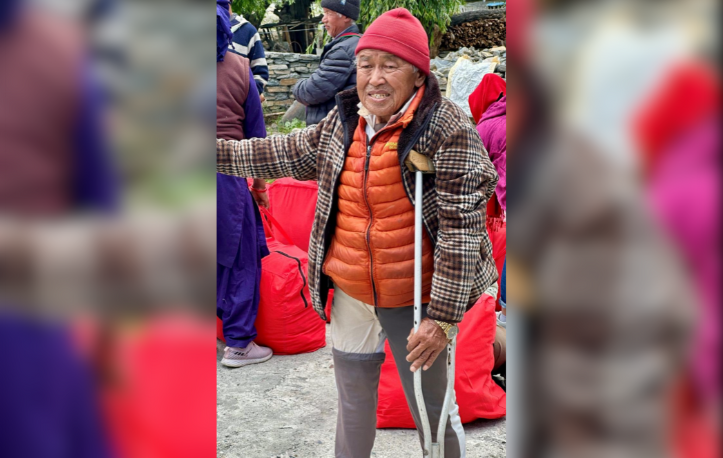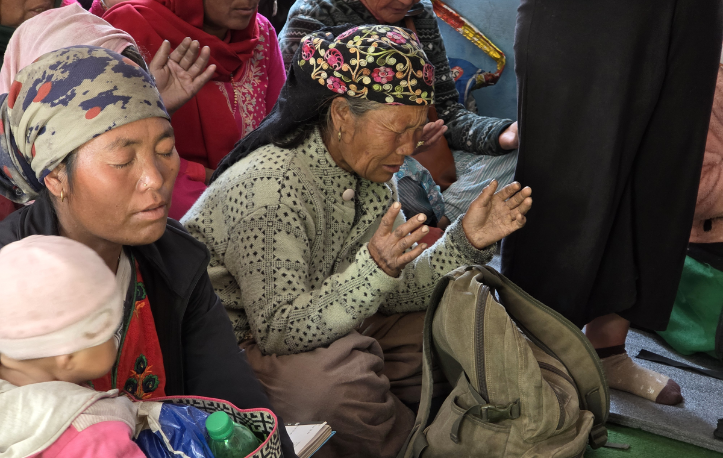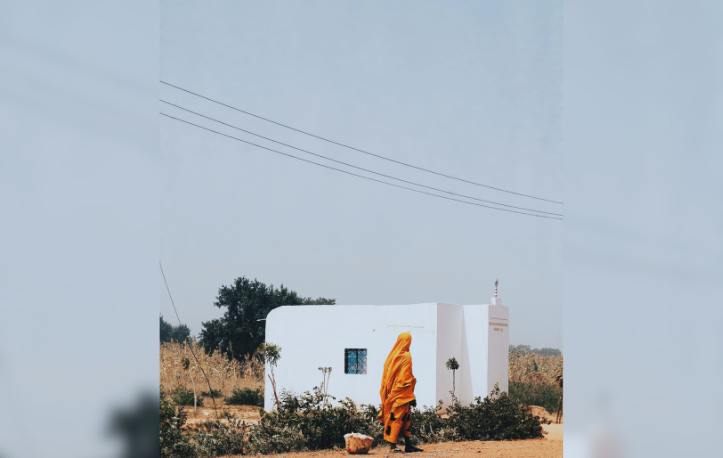The conflict in Ukraine has created a hunger for the gospel as well as strengthening the church.
Here three pastors, whose identities must be kept secret, describe life under Russian occupation.
“God knows what war means; we didn’t,” said Pastor T, whose church continued to operate under occupation after the invasion by Russian troops.
A city under occupation is not what you think. It is not suddenly full of foreign soldiers; it’s just that things like the police and the tax system have changed. The occupiers don’t care about you, just their own needs and goals. You still live in your city but it’s not your city anymore. Shops are closed; some days people didn’t have food, water, electricity, the internet … but we tried to be a church and help people to survive by sharing food, medicines and water.”
Pastor T had to flee his hometown six months after the invasion but while he was there his church became a much-needed resource for Christians and non-believers alike.
“We tried to renew worship services because people were afraid. There was no news, people didn’t know what was going on so the church became a place where people could receive support and care. Every day they came to church because everything else was closed. It became a place where they could open their minds and receive encouragement. We shared with non-believers as well.”
To try to win the hearts and minds of the local population, the Russians, who knew they were not welcome or liked, tried to appear as the great liberators and the only source of provision – so the church became the chief competition.
“When the Russian soldiers said to us, ‘We set you free’, we asked, ‘From what? Water? Electricity?’”
As well as facing the threat of being robbed by the invaders or being arrested, deported or beaten for showing any pro-Ukrainian sympathies, Christians not belonging to the Russian Orthodox were also at risk. “Priests and pastors in some occupied cities were arrested and beaten, even deported from the area, and some were killed,” said Pastor T. “Even members of the Ukrainian Orthodox were forbidden.”
While some believers hid their faith, others declared it openly, so being a pastor under occupation threw up a host of new challenges. “The church is a place for kindness, softness, mercy and forgiveness but in wartime, you need to be strong and make difficult decisions. Sometimes even what may appear cruel decisions such as giving medicines and food to some but not others. At the same time, God healed people in their homes. He knows what war means; we didn’t.”
Before being forced to leave the city, Pastor T helped many Ukrainians in the Russian-controlled territories to flee the occupation. He believes that the challenge of living under oppression and then becoming refugees will help ministers to be more effective and to help those in need.
“In the last 200 years, there have been no more than 20 or 30 years of freedom for evangelicals in the Ukrainian church. There have been waves of freedom and terror, so it’s not strange for Christians to be persecuted. We accept that persecution can come – it is not punishment. God wants us to be stronger.
“And we know how to accept refugees and how to be refugees. We know how to be persecuted. Ukrainians have now experienced church in other western countries so the church in future will be a strong, cross-cultural movement. Borders mean nothing for Christianity. And people in the West now know what a refugee is because they are their neighbours, real people.”
Opportunity amid the tears
Despite running a vibrant church for refugees in another Central European country, Pastor O has returned to the war-torn port city of Odessa on the Black Sea to preach the gospel and minister to the local church and the wider Ukrainian church as a whole.
“I was not surprised when the war started; I could see from what happened in Georgia in 2008 [the invasion by Russia] how things were developing. Months before the war started, we talked in church about what we would do, and I started becoming involved in the evacuation of thousands of orphans.”
He told stories of Christians trying to escape the cities that had come under attack and being beaten and abused by Russians at the borders.
One man, his wife and nine foster children were stopped at a checkpoint. “When the guards found out he was a Baptist they made him wait and told him they were waiting for two more men to come. What they wanted to do was see if they could kill three men with one bullet.
“The Ukrainian said that if they killed him, they would be killing his whole family as his wife did not drive so could not get the family away from danger. Referring to the foster children, he said to the soldiers: ‘Maybe some of them are your children.’ One of the soldiers struck him in the ribs with his rifle and said, ‘Remember my mercy and get out of here!’ The man got back into the car and lost consciousness.”
Sadly, he also relayed accounts of young women being raped and a teenage boy being taken away from his mother at a border crossing.
Pastor O had set up a thriving church for around 250 refugees in a safe country but feeling compelled to return to Ukraine, handed the congregation over to another pastor’s care and headed for Odessa.
He described the situation there as a “time of great tears but also opportunity”.
“In the valleys of weeping are the springs. Every day I preach the gospel I see the springs of grace. Hundreds come to our church to be fed and we can travel to other places to encourage believers. Just after Kherson was liberated, we brought them food and water and one woman was so grateful she kissed my hands.”
Since the war, he said, he had been presented with the greatest opportunities to preach the gospel he had ever known. “In Kherson, we ran out of Christian literature to give the crowds, which had never happened before. In the past no one was interested but now the Lord has created a great hunger for the gospel.”
Pastor O believes there will be a revival, starting from the army. “After 2014 [the start of Russia’s initial incursion into Ukraine], we started taking food and other supplies to the soldiers. They said we were crazy because it was so dangerous, but we told them that God loved them so much that we had come to see them.”
As a result, Pastor O and his team were able to pray for the soldiers and their families.
Learning to be thankful
During one city battle, Pastor S from eastern Ukraine helped to evacuate up to 3,000 people.
“Shells were falling all around, even on playgrounds,’ he said. ‘But thanks to your prayers tens of thousands of people stayed alive.”
His church’s mission now is to feed those caught up in the conflict. “We are learning to be thankful to the Lord for what there is and really value things like water and electricity. At one village that had been attacked, we met a woman who was so happy – simply because her community had not been shelled or fired on for a day!”
Another told him: “We have no shops, no chemist, no water, but I praise Jesus that he has protected my house.”
Pastor S, who himself had a narrow escape when a missile exploded near his car, added: “They have taught me how to be thankful. In Ukraine we are learning to be thankful to the Lord for light and water … and not being shelled!”




Submit a Prayer